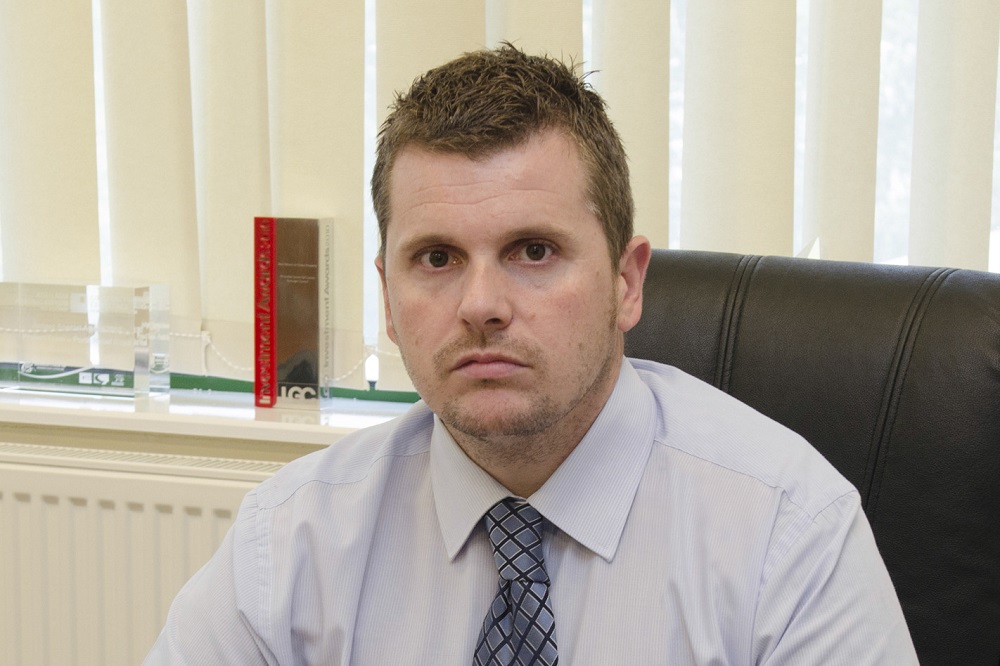Welsh councils facing multimillion pound ‘black hole’ in next year’s budgets

Nicholas Thomas, local democracy reporter
Councils in Wales are bracing themselves for a multimillion pound “black hole” when they prepare their budgets for next year.
Rises in central government grants have not kept pace with soaring costs to run and maintain essential services, opening up huge projected budget gaps in councils’ finances.
Every council which responded to the Local Democracy Reporting Service (LDRS) this week reported they would have to make millions in savings next year.
Among the gloomiest forecasts are Cardiff Council, which is facing a £49.7m shortfall in next year’s budget, followed by Caerphilly (£33m), Pembrokeshire (£25m) and Neath Port Talbot (£23m).
‘Unsustainable’
The Welsh Local Government Association (WLGA) has warned pressure is “unsustainable” and urged decision-makers in the Senedd and in Westminster to “step up” with more investment.
Central government grants make up the majority of council funding in Wales.
The situation in Caerphilly is one of the worst of the nation’s 22 local authorities, and leaders there anticipate they will have to plug a £33m hole in next year’s budget, and another £12m the year after that.
Speaking to the LDRS, Caerphilly County Borough Council leader Sean Morgan said tough decisions would have to be made to protect key services like education and social services.
Other council responsibilities such as parks, libraries, community centres and leisure could all face cuts, closures or reforms as a result.
Unallocated reserves
Caerphilly holds around £16m in unallocated reserves and has already dipped into that pot this year to balance its budget – doing so again would wipe out its savings for emergencies and would only run services for a fortnight, the council’s cabinet member for finance announced recently.
Cllr Morgan told the LDRS some other councils in Wales are “down to four or five million” in reserves and are “pretty close” to issuing Section 114 notices – effectively declaring bankruptcy and calling in external commissioners to balance the books.
“Caerphilly, if we didn’t make changes, we would make it two years” before reaching a Section 114 scenario, he warned.

Andrew Morgan, who leads the WLGA, warned this week that “without extra funding to maintain services, councils will struggle to maintain the services that our communities need”.
“The WLGA has emphasised that, despite these challenges, councils remain committed to supporting their residents and working with Welsh Government to help deliver their priorities, but with budget pressures on the rise, it’s really important for both the Welsh and UK governments to step up and provide the investment we need to keep these essential services running,” he added.
A Welsh Government spokesperson told the LDRS: “We recognise the very real challenges local authorities are facing.
“We meet regularly with local authorities to discuss these against the backdrop of the current financial climate, as we prepare our own draft budget for 2025/26.”
Budget gap
The LDRS contacted Wales’ 22 local authorities to find out how big of a budget gap they were anticipating for next year, and how much they currently hold in unallocated reserves.
The figures come amid the revelation the Welsh Government is drawing up plans in case Welsh councils go bust.
Blaenau Gwent County Borough Council said it has estimated needing to make around £6m in savings next year. Its general reserves have a balance of £13m.
Bridgend County Borough Council is working on a savings total of £20.8m for 2025/26, and its council fund currently stands at £9.7m.
Caerphilly County Borough Council predicts it will have to save £45m over the next two years, including £33m this year. It holds around £16m in unallocated reserves.
Cardiff Council said its budget gap for next year is currently estimated to be £49.7m. The council’s unallocated reserves, at the end of March this year, stood at £14.2m. Some of its other earmarked reserves of £117m can be used “to support financial resilience”, a spokesman added.
At Carmarthenshire County Council, the estimated savings requirement is £11.9m next year, and £34m over the next three years. Its council fund stood at £14m at the end of March.
Ceredigion Council is anticipating a budget gap of £8m for 2025/26, and has £6.7m in its general balances and £44m in its earmarked reserves. “Relative to the Council’s £193.6m budget, the combination of earmarked reserves and general balances only affords approximately three months’ worth of cover,” a spokesperson said.
Conwy County Borough Council is currently forecasting a funding shortfall of £22.8m in 2025/26. The council has warned that the level of savings “will be substantial to fund the overall shortfall”. As of April 2024, the council holds £4.3m in general or unallocated balances, as well as other reserves specifically earmarked to support budget pressures of £8.5m.
Savings
A spokesperson for Gwynedd Council said: “£3.5m worth of savings has already been approved for the 2025/26 financial year, and a further £343,000 in 2026/27. Further savings are also under consideration. In the council’s Statements of Accounts for 2023/24 our balances [at the year’s end] were £7.9 million.”
The Isle of Anglesey Council said the budget gap for 2025/26, “before raising taxes and receiving any increase in the Welsh Government grant, is £16m”. The council currently has £11.2m of reserves that has not been earmarked for any specific projects.
Merthyr Tydfil County Borough Council confirmed it is estimating it will need to make £8.8m in savings in the next budget-setting exercise. It currently holds £6.5m in unallocated reserves.
Monmouthshire County Council said latest estimates show a “budget gap of £11.4m which, all things remaining equal, would need to be met through budget savings”. Unallocated reserves are “expected to be £15.3m at the end of the 2024/25 financial year”.
Neath Port Talbot County Borough Council said it was taking a “series of measures attempting to plug the budget “black hole” totalling £23m next year. It did not share information on its unallocated reserves balance.
Newport City Council said it calculated in February 2024 that a budget gap for 2025/26 “could be as much as £20m” but that figure is currently being updated. “Our current unallocated reserves stand at £5.3m,” a spokesperson added.
Pembrokeshire County Council said current savings estimates for next year are “circa £24m to £25m”. A spokesperson added: “All reserves are allocated but there is circa £15m in the Initiative Fund/Hardship Fund Reserves and £9m in the Working Balance.”
Powys County Council estimates £17.4m savings will need to be made next year, and between £62m and £85m over the next five years. The council holds £13.6m in unallocated reserves.
Swansea Council said it “cannot state what the savings requirement will be at this stage”. It holds £12m in unallocated reserves “thanks to prudent financial management over a number of years”, a spokesman added.
The Vale of Glamorgan Council is preparing to plug a £9.3m budget gap next year, and had a general fund balance of £11.1m at the end of last year.
Denbighshire, Flintshire, Rhondda Cynon Taf and Torfaen councils did not respond.
Support our Nation today
For the price of a cup of coffee a month you can help us create an independent, not-for-profit, national news service for the people of Wales, by the people of Wales.








They ALL will no doubt find enough funds to bank roll their salary increases for sure…
With significant numbers of staff now working from home, why on earth is the tax payer still funding all the empty office space? Consolidate the workers into fewer buildings and lease or sell the rest.
Welsh Labour are complicit with the ongoing austerity. They’re in their cut-making comfort zone. Developing our country isn’t their forte, making cuts is their default position. To my knowledge the people mentioned in this article have little or no qualifications yet they are leading multi-million pound organisations – unbelievable.